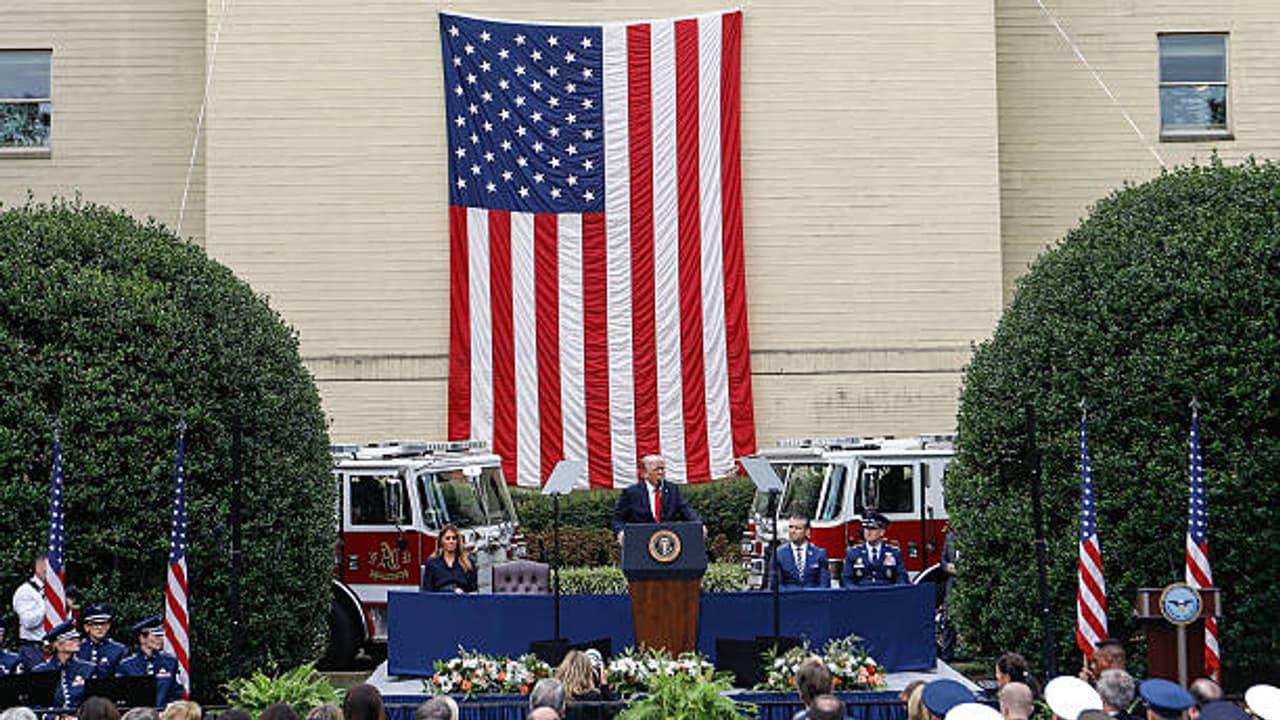
Turning Down The Temperature Of America's Political Rhetoric
“Go back to your country!” Racist rants like these, caught on shaky phone cameras, are shared instantly and go viral on social media. A few days ago, when President Donald Trump stopped at a Washington, D.C., restaurant, a few protesters who had gathered inside chanted“Hitler of our time.” Years earlier, a friend of mine claimed President Obama's healthcare law, often labeled“Obamacare,” was“the biggest crime against humanity.” ALL CAPS tweets with invectives and name calling are being celebrated and even emulated. Shouting matches on television have spilled over into everyday life, eroding the last traces of civility.
These moments illustrate how America's political conversation has grown reckless, angry, and dangerously detached from reality.
Democracy was designed to channel disagreement, not to erase it. Debate is its safeguard. But when every policy is cast as a catastrophe, when every opponent is painted as a mortal threat, democracy's guardrails weaken. The recent assassination of Charlie Kirk, the cold blooded murder of two Minnesota lawmakers, and the unending scourge of gun violence remind us that words matter. They shape the climate in which people act, and they can become accelerants for tragedy.
Partisan attacks may excite a base or score points on cable news, but they corrode the public space. They make compromise appear as betrayal and render nuance irrelevant. They flatten complex, layered issues into slogans, leaving little space for serious governance. The health of a democracy depends not on silencing opponents but on engaging them, on passionate argument tested through persuasion, not demonization.
Restraint is not weakness. It is democratic discipline. Those who hold the highest offices bear the greatest responsibility to model it, but the duty belongs to every elected representative and every citizen. Civility is not surrender. It is what keeps debate from collapsing into chaos.
The United States has navigated deep divisions before. At its best, the nation has argued fiercely yet respectfully, whether over civil rights, economic reforms, or foreign policy. Reclaiming that tradition is urgent now. Leaders must temper their language, media outlets must resist amplifying outrage, and citizens must remember that behind every party label is a neighbor who shares many of the same hopes for dignity, safety, and opportunity.
America's challenges, including rising inequality, immigration pressures, climate change, and technological disruption, are too serious to be reduced to chants, memes, and insults. The work of democracy demands more: listening as well as speaking, persuasion instead of vilification, disagreement without contempt.
If the United States is to preserve its democratic institutions, it must rediscover the lost art of healthy disagreement. Lowering the temperature of rhetoric is not a luxury. It is a necessity. And it is the only way America can emerge stronger, not by silencing its opponents but by engaging them with respect.
Legal Disclaimer:
MENAFN provides the
information “as is” without warranty of any kind. We do not accept
any responsibility or liability for the accuracy, content, images,
videos, licenses, completeness, legality, or reliability of the information
contained in this article. If you have any complaints or copyright
issues related to this article, kindly contact the provider above.


















Comments
No comment